
Port Olry: A Serene Island Paradise
Port Olry is a charming village located on the northern coast of Espiritu Santo, the largest island in Vanuatu. Known for its unspoiled beaches and crystal-clear waters, Port Olry offers a tranquil escape from the hustle and bustle of everyday life. The village is surrounded by lush greenery and coconut palms, creating a picturesque setting that feels like a tropical dream. One of the highlights of visiting Port Olry is its stunning beach, which is perfect for swimming, snorkeling, and simply relaxing on the soft, white sand. The waters here are teeming with marine life, making it a great spot for underwater exploration. Nearby, you'll find small, family-run restaurants serving fresh seafood and traditional Vanuatuan dishes, allowing you to enjoy the local flavors while taking in the beautiful ocean views. In addition to its natural beauty, Port Olry is known for its warm and welcoming community. The villagers take pride in their culture and are eager to share it with visitors. You can participate in cultural activities, such as traditional dance performances and handicraft demonstrations, providing a deeper understanding of the local way of life. Whether you're looking for adventure or relaxation, Port Olry offers an unforgettable experience in a paradise-like setting.
Local tips in Port Olry
- Visit during the dry season (May to October) for the best weather conditions.
- Bring snorkeling gear to explore the vibrant marine life just off the beach.
- Try local seafood dishes at family-run restaurants for an authentic culinary experience.
- Respect the local customs and traditions when participating in cultural activities.
- Ensure you have enough cash, as there are limited ATMs in the area.
Port Olry: A Serene Island Paradise
Port Olry is a charming village located on the northern coast of Espiritu Santo, the largest island in Vanuatu. Known for its unspoiled beaches and crystal-clear waters, Port Olry offers a tranquil escape from the hustle and bustle of everyday life. The village is surrounded by lush greenery and coconut palms, creating a picturesque setting that feels like a tropical dream. One of the highlights of visiting Port Olry is its stunning beach, which is perfect for swimming, snorkeling, and simply relaxing on the soft, white sand. The waters here are teeming with marine life, making it a great spot for underwater exploration. Nearby, you'll find small, family-run restaurants serving fresh seafood and traditional Vanuatuan dishes, allowing you to enjoy the local flavors while taking in the beautiful ocean views. In addition to its natural beauty, Port Olry is known for its warm and welcoming community. The villagers take pride in their culture and are eager to share it with visitors. You can participate in cultural activities, such as traditional dance performances and handicraft demonstrations, providing a deeper understanding of the local way of life. Whether you're looking for adventure or relaxation, Port Olry offers an unforgettable experience in a paradise-like setting.
When is the best time to go to Port Olry?
Iconic landmarks you can’t miss
Matevulu Blue Hole
Experience the beauty of Vanuatu at Matevulu Blue Hole, a stunning natural attraction perfect for swimming, snorkeling, and relaxation in tropical paradise.
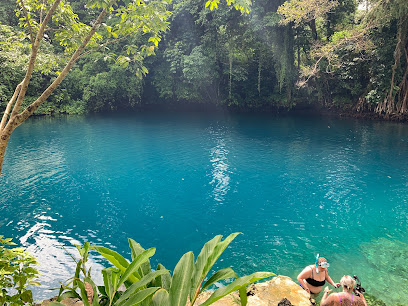
Chez Louis Restaurant
Experience the exquisite flavors of Vanuatu at Chez Louis Restaurant, a culinary gem on the Champagne Coast Road in Port Olry, offering stunning views and exceptional service.
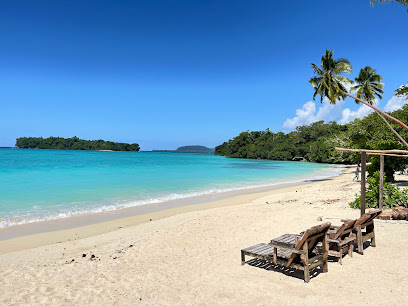
Port Olry Beach Bungalows
Experience the serene beauty of Port Olry Beach Bungalows, where tropical paradise meets comfort in the heart of Vanuatu.

Serenity Restaurant and Treehouse Bungalows
Discover the perfect blend of relaxation and gourmet dining at Serenity Restaurant and Treehouse Bungalows in beautiful Port Olry, Vanuatu.
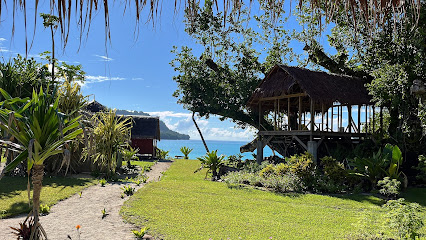
Port Olry Harbour Beach Restaurant & Bungalow
Experience the tranquility and authentic flavors of Vanuatu at Port Olry Harbour Beach Restaurant & Bungalow, your perfect beachside getaway.
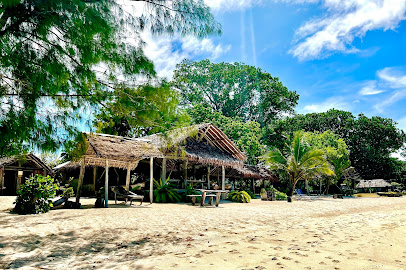
Unmissable attractions to see
South Pacific WWII Museum
Explore the South Pacific WWII Museum in Luganville for a captivating journey through history, honoring the bravery and sacrifices of those who served.
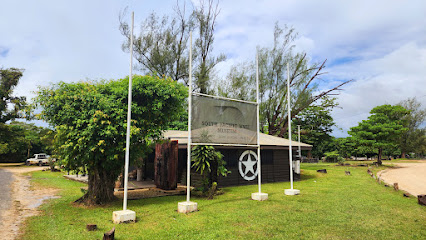
Vanuatu Tourism Office
Explore Vanuatu with insights from the Tourism Office, your essential guide to the islands' culture, adventures, and natural beauty.
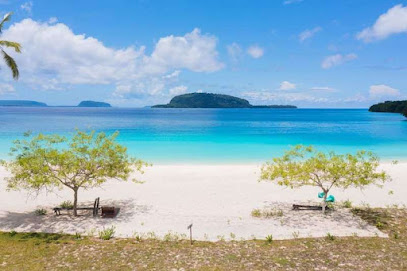
Lapita Beach Aore Island
Experience paradise at Lapita Beach, Aore Island - where pristine sands meet crystal-clear waters for the perfect getaway in Vanuatu.
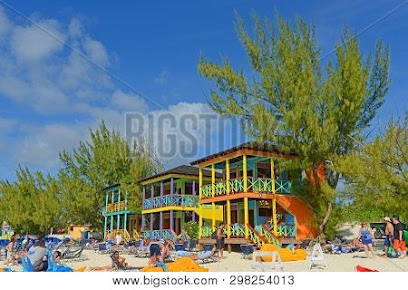
Taffuntari Waterfall Tours
Experience the breathtaking beauty of Taffuntari Waterfall Tours, a nature preserve that showcases the stunning landscapes of Vanuatu.
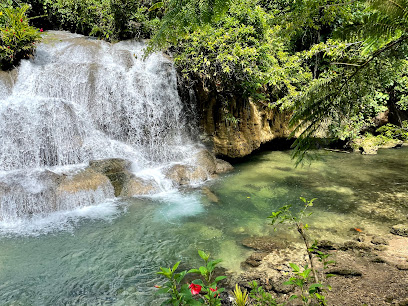
Unity Park
Discover the lush tranquility of Unity Park in Luganville, a serene city park perfect for relaxation and enjoying the natural beauty of Vanuatu.
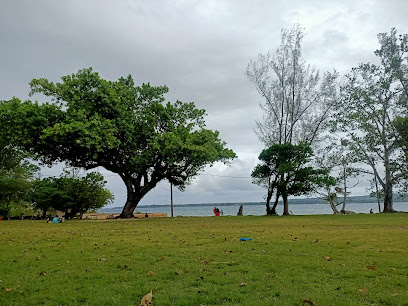
Jackie's Blue Hole
Explore the serene beauty of Jackie's Blue Hole, a hidden gem in Burie, Vanuatu, perfect for relaxation and nature lovers.
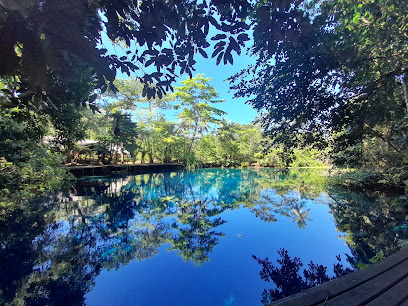
St Michele Landing. Pickup point for Lapita Beach Day Tours
Discover St Michele Landing, the prime pickup point for unforgettable Lapita Beach day tours and your gateway to Vanuatu's stunning coastal beauty.

Chapui Park
Experience the serene beauty of Chapui Park in Luganville, Vanuatu, where lush landscapes and tranquility await every visitor.

Vunausi Conservation & Enviromental Organisation
Explore Vunausi Conservation & Environmental Organisation, a stunning eco-tourism destination in South Santo, Vanuatu, dedicated to environmental conservation and education.
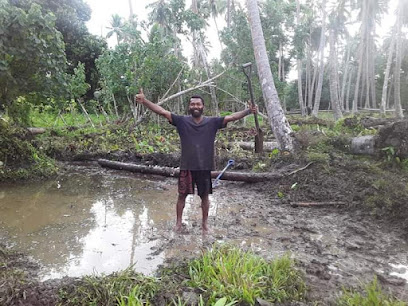
Memorial to Captain Elwood J. Euart
Explore the Memorial to Captain Elwood J. Euart in Luganville, a heartfelt tribute to a WWII hero amidst stunning natural beauty.

Asanalivo
Discover tranquility at Asanalivo, a picturesque garden in Asamaranda, Vanuatu, where nature's beauty and serene landscapes await your exploration.

Lo-one
Explore the stunning natural beauty of Lo-one Park in Ambae, a serene haven for nature lovers and adventure seekers in Vanuatu.
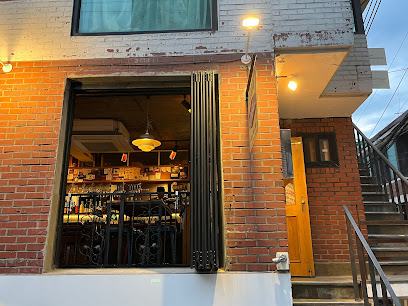
Najingo Harmony Park
Explore Najingo Harmony Park on Tangoa Mainland, a tranquil escape in Espiritu Santo, perfect for nature lovers and families alike.
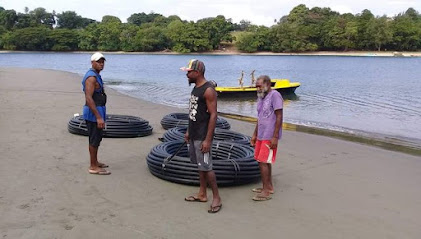
Manaro Park
Discover the tranquil beauty of Manaro Park in Luganville, Vanuatu—a serene retreat for nature lovers and families alike.

Essential places to dine
Chez Louis Restaurant
Discover exquisite local cuisine with breathtaking ocean views at Chez Louis Restaurant on Vanuatu's beautiful Champagne Coast.
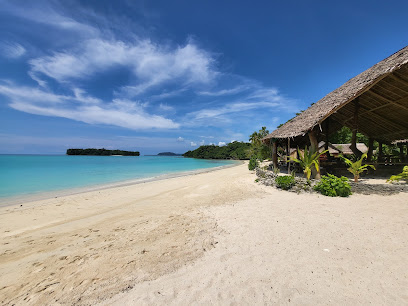
smugglers Seafood Restaurant & Bar
Experience fresh seafood and vibrant local culture at Smugglers Seafood Restaurant & Bar in Luganville.
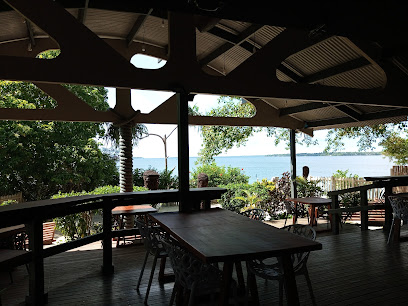
Port Olry Beach Resort - Harbour View Restaurant
Experience exquisite dining at Harbour View Restaurant in Port Olry Beach Resort – where stunning ocean views meet authentic Vanuatu cuisine.
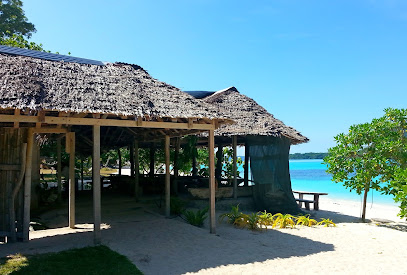
Port Olry Beach Bungalows
Discover tranquility at Port Olry Beach Bungalows – your gateway to Vanuatu’s natural beauty and rich culture.

Port Olry Beach Resort - Pey Seriniti Restaurant
Experience culinary excellence amidst breathtaking views at Port Olry Beach Resort's Pey Seriniti Restaurant in Vanuatu.
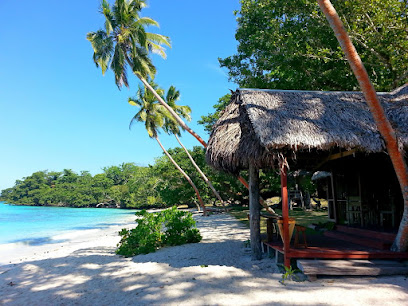
Port Olry Harbour Beach Restaurant & Bungalow
Experience local flavors and breathtaking views at Port Olry Harbour Beach Restaurant & Bungalow - your tropical escape in Vanuatu.
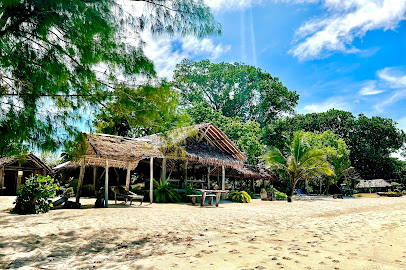
Warung nasi goreng Vanuatu
Experience authentic Indonesian flavors at Warung Nasi Goreng in Port Olry, Vanuatu's hidden brunch treasure amidst stunning tropical landscapes.

Markets, malls and hidden boutiques
Chez Louis Restaurant
Discover the culinary delights of Vanuatu with breathtaking views at Chez Louis Restaurant on Champagne Coast Road.
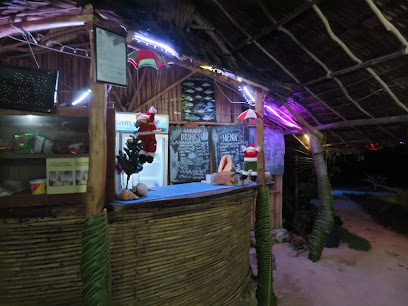
LCM
Discover Luganville's LCM Grocery Store - A hub for fresh local produce and international delights in Vanuatu.
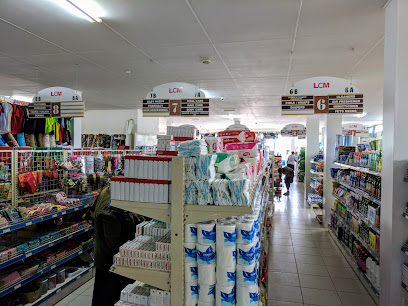
Port Olry Beach Bungalows
Experience the tranquil beauty of Port Olry Beach Bungalows, a perfect retreat along Vanuatu's stunning Champagne Coast with breathtaking views and serene surroundings.

Santo Hardware
Explore Santo Hardware in Luganville for a diverse range of home goods and local expertise, making your Vanuatu visit seamless and enjoyable.
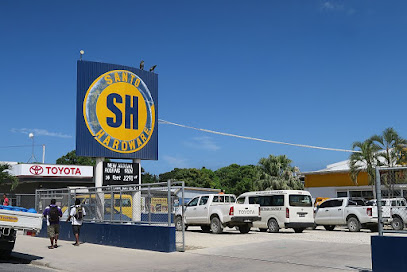
Lopo Store
Explore Luganville's vibrant local flavors at Lopo Store, your go-to grocery destination for fresh produce and unique island treasures.
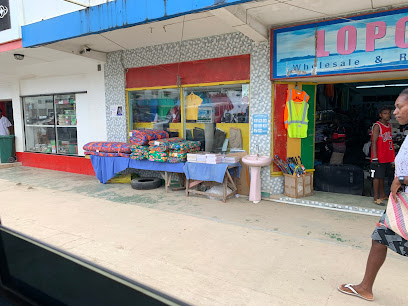
Op Shop
Explore Op Shop in Luganville for a unique shopping experience filled with affordable treasures and local charm.
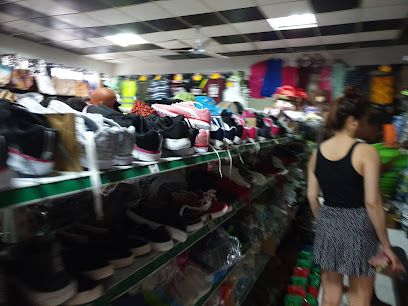
Virelala Private Beach
Discover the serene beauty of Virelala Private Beach in Espiritu Santo, where pristine sands and tranquil waters await every traveler.

NEW LOOK
Explore local treasures and everyday essentials at NEW LOOK, the charming variety store in Luganville, Vanuatu.
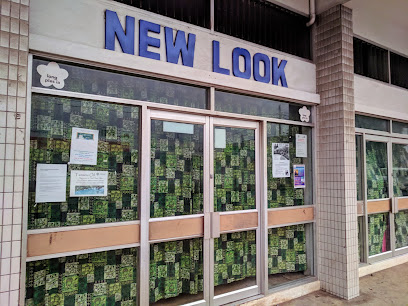
Bejomel Clothing
Discover sustainable fashion treasures at Bejomel Clothing, Luganville's premier used clothing store for unique and stylish apparel.

Daming Store
Explore Daming Store in Luganville - a shopping haven blending local crafts, vibrant culture, and delicious food in a welcoming atmosphere.
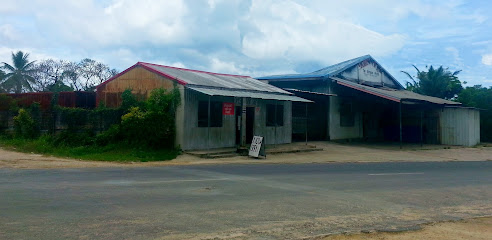
Wong Sze Sing Store
Experience the essence of Vanuatu at Wong Sze Sing Store in Luganville, where local flavors and community spirit come together.
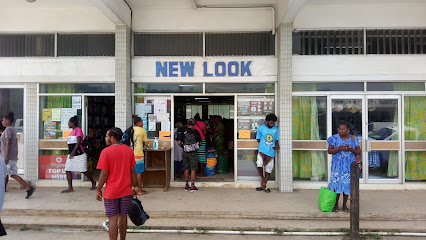
Michael Shao Store
Discover the local flavors of Vanuatu at Michael Shao Store, your essential grocery stop in Luganville for fresh produce and unique snacks.
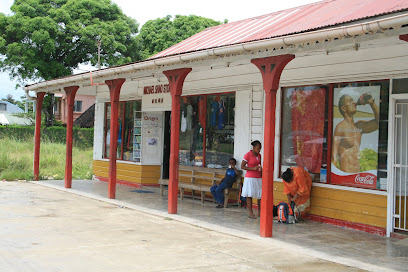
Sunshine Shopping
Explore Sunshine Shopping in Luganville for unique local crafts, souvenirs, and an authentic taste of Vanuatu's vibrant culture.

Chuan Store Downtown
Explore the vibrant culture of Luganville at Chuan Store Downtown, your go-to variety store for unique local products and souvenirs.
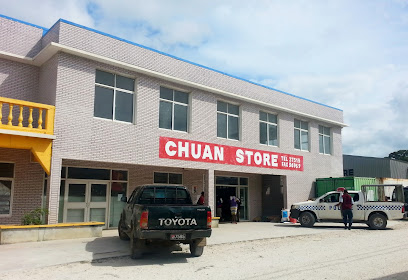
Millenium Community Store
Experience the vibrant retail and cultural scene at Millennium Community Store, the heart of shopping in Luganville.

Essential bars & hidden hideouts
Chez Louis Restaurant
Experience the flavors of Vanuatu at Chez Louis Restaurant, where local cuisine meets stunning ocean views in Port Olry.
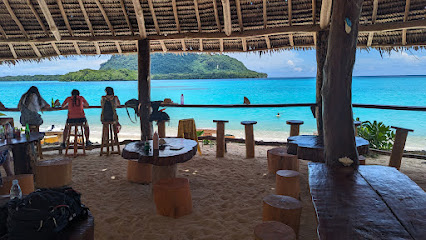
Champagne Beach Bar
Experience the essence of Vanuatu at Champagne Beach Bar with stunning views, refreshing drinks, and a laid-back atmosphere perfect for relaxation.
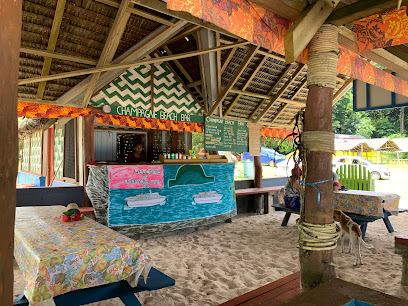
smugglers Seafood Restaurant & Bar
Experience the vibrant flavors of Vanuatu at Smugglers Seafood Restaurant & Bar, where fresh seafood meets stunning ocean views.
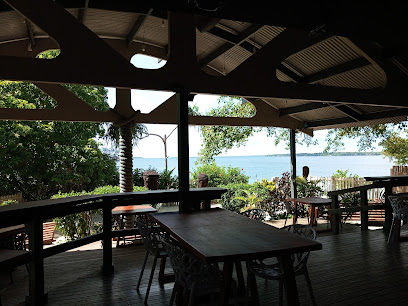
Port Olry Beach Resort - Harbour View Restaurant
Experience the best of Vanuatu at Port Olry Beach Resort & Harbour View Restaurant, where breathtaking views meet exceptional local cuisine.
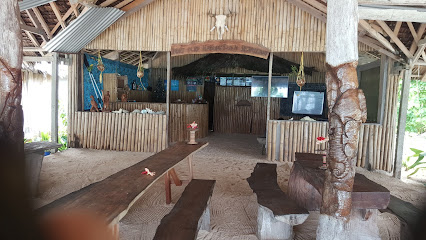
Port Olry Beach Bungalows
Discover the serene beauty of Port Olry Beach Bungalows, your tranquil escape on the Champagne Coast of Vanuatu, perfect for families and couples.

Port Olry Beach Resort - Pey Seriniti Restaurant
Discover the best of Vanuatu's local cuisine at Port Olry Beach Resort - Pey Seriniti Restaurant, where stunning ocean views meet culinary excellence.
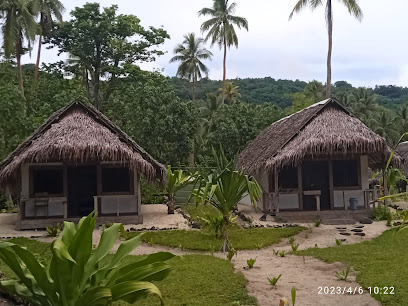
Mango Kava Bar
Experience the vibrant atmosphere and authentic taste of Vanuatu at Mango Kava Bar, the perfect place to unwind with friends.
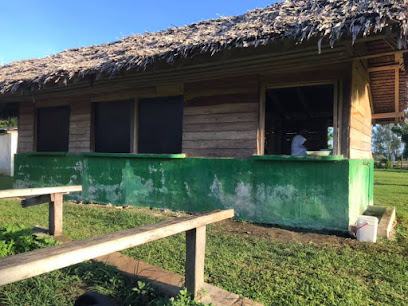
Red Corner Kava Bar
Experience the authentic taste of Vanuatu at Red Corner Kava Bar, where traditional kava meets a vibrant tropical atmosphere.

WW2 Million Dollar Point Bar & Cafe
Discover the historical allure of WW2 Million Dollar Point Bar & Cafe in Luganville, where rich history meets breathtaking views and refreshing drinks.
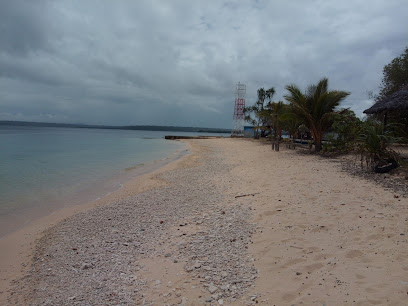
Totel Kava Bar
Discover the authentic taste of Vanuatu at Totel Kava Bar, where tradition meets relaxation in the heart of Luganville.

Port Olry Harbour Beach Restaurant & Bungalow
Experience the serene beauty of Vanuatu at Port Olry Harbour Beach Restaurant & Bungalow, a perfect blend of relaxation and local culture.
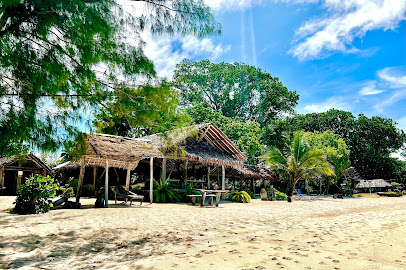
Warung nasi goreng Vanuatu
Experience the vibrant culinary scene of Vanuatu at Warung Nasi Goreng in Port Olry, where local and international flavors come together.

Temperere Kava bar
Discover the authentic taste of Vanuatu at Temperere Kava Bar, where kava meets culture in a vibrant atmosphere.

Bamboo kava bar
Experience the authentic taste of Vanuatu at Bamboo Kava Bar, the perfect spot to enjoy traditional kava in a serene tropical setting.
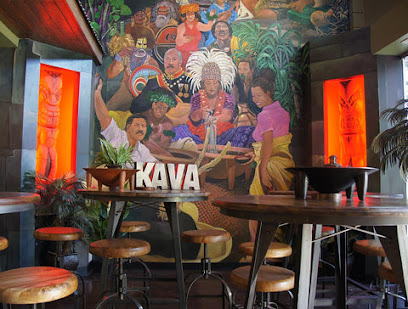
BLACK DIAMOND KAVA BAR
Discover the authentic kava experience at Black Diamond Kava Bar in Luganville, where local culture meets a relaxing atmosphere.
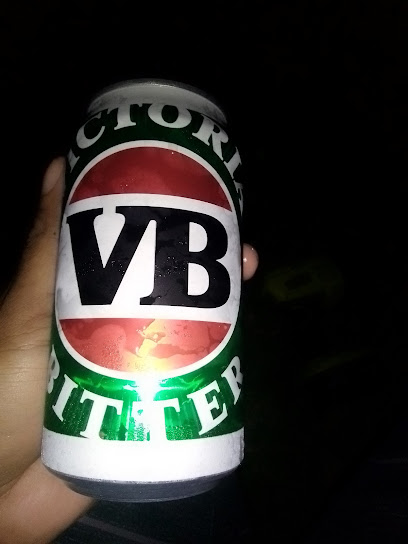
Local Phrases about Port Olry
-
- HelloAlo
[ah-loh] - GoodbyeOrevwa
[oh-rev-wah] - YesOui
[wee] - NoNon
[nohn] - Please/You're welcomeTanem
[tah-nem] - Thank youTankiu
[tahn-kyoo] - Excuse me/SorrySekem
[seh-kem] - How are you?Yu stap gut?
[yoo stap goot] - Fine. And you?Stap gut. O yu?
[stap goot. oh yoo] - Do you speak English?Yu save toktok Inglis?
[yoo sah-veh tohk-tohk in-glees] - I don't understandMi no save
[mee noh sah-veh]
- HelloAlo
-
- I'd like to see the menu, pleaseMi wantem lukluk long menu, plis
[mee wan-tem look-look long men-oo, plees] - I don't eat meatMi no kakae mit
[mee noh kah-kae meet] - Cheers!Yufala
[yoo-fah-lah] - I would like to pay, pleaseMi wantem peim, plis
[mee wan-tem paym, plees]
- I'd like to see the menu, pleaseMi wantem lukluk long menu, plis
-
- Help!Helpem!
[help-em] - Go away!Go we!
[go way] - Call the Police!Karem Polis!
[kah-rem poh-lees] - Call a doctor!Karem dokta!
[kah-rem dohk-tah] - I'm lostMi las
[mee lahs] - I'm illMi sik
[mee seek]
- Help!Helpem!
-
- I'd like to buy...Mi wantem baim...
[mee wan-tem bah-eem] - I'm just lookingMi jas lukluk
[mee jahs look-look] - How much is it?Hao moa?
[hah-oh moh-ah] - That's too expensiveI hem i gud tumas
[ee hem ee goot too-mahs] - Can you lower the price?Yu save katkat prais iet?
[yoo sah-veh kaht-kaht price yet]
- I'd like to buy...Mi wantem baim...
-
- What time is it?Hao taem nao?
[hah-oh tah-em now] - It's one o'clockWan o'klok
[wahn oh-klok] - Half past (10)I stap haef long ten
[ee stap hayf long tehn] - MorningMoning
[moh-nin] - AfternoonApinun
[ah-pee-noon] - EveningEvening
[ee-ven-ing] - YesterdayI gat tumas
[ee gaht too-mahs] - TodayTedei
[teh-day] - TomorrowTomoro
[toh-moh-roh] - 1Wan
[wahn] - 2Tu
[too] - 3Tri
[tree] - 4Fo
[foh] - 5Faev
[fahv] - 6Sikis
[see-kees] - 7Seven
[seh-ven] - 8Eit
[ayt] - 9Nain
[nine] - 10Ten
[tehn]
- What time is it?Hao taem nao?
-
- Where's a/the...?Wea i stap ...?
[way-ah ee stap] - What's the address?Wea i stap adres?
[way-ah ee stap ad-dress] - Can you show me (on the map)?Yu save soem blong mi (long map)?
[yoo sah-veh sohm blohng mee long map] - When's the next (bus)?Hao taem nambawan (bisi)?
[hah-oh tah-em nahm-bah-wahn bee-see] - A ticket (to ....)Wan tiket (long ....)
[wahn tee-ket long]
- Where's a/the...?Wea i stap ...?
History of Port Olry
-
Port Olry, located on the island of Espiritu Santo in Vanuatu, has been home to the indigenous Ni-Vanuatu people for centuries. The region is rich in Melanesian culture, known for its traditional customs, languages, and practices. The local community has maintained a close connection with nature, relying on fishing, farming, and hunting for sustenance. Customary dances, music, and art forms have been preserved and continue to be an integral part of the community's identity.
-
The first recorded European contact with Port Olry and the surrounding areas occurred in the 18th century when Spanish explorer Pedro Fernández de Quirós arrived in Espiritu Santo in 1606. The island was later visited by British navigator James Cook in 1774. The interactions between the indigenous communities and European explorers were initially limited but gradually increased as trading opportunities and missionary activities expanded.
-
In the 19th century, Christian missionaries, particularly from the Presbyterian Church, arrived in Port Olry and other parts of Espiritu Santo. They sought to convert the local population to Christianity, leading to significant cultural changes. The establishment of missions and schools introduced new educational and religious practices, and many aspects of traditional life were altered or abandoned as a result.
-
During World War II, Port Olry and Espiritu Santo played a crucial role as a strategic military base for the Allied forces, particularly the United States. The island's location made it an ideal staging point for operations in the Pacific Theater. The presence of thousands of American military personnel led to the construction of infrastructure, including airstrips, roads, and military facilities. Some remnants of this period, such as the Million Dollar Point, where surplus military equipment was dumped into the sea, can still be found today.
-
Vanuatu gained independence from joint British and French colonial rule in 1980, and Port Olry has since developed as part of the newly established nation. The village has seen gradual improvements in infrastructure, education, and healthcare. Tourism has become an important industry, with visitors drawn to the area's natural beauty, vibrant culture, and historical significance. Efforts have been made to balance development with the preservation of traditional ways of life and the environment.
-
Port Olry is known for its vibrant cultural festivals, which showcase the rich heritage of the Ni-Vanuatu people. Events such as the annual Yam Festival celebrate the yam harvest, a staple crop in the region. These festivals feature traditional dances, music, feasting, and rituals, offering visitors a unique opportunity to experience the living culture of Port Olry. The preservation of these traditions is vital to the community's identity and offers a glimpse into the island's enduring cultural legacy.
Port Olry Essentials
-
Port Olry is located on the northern coast of Espiritu Santo, Vanuatu's largest island. The nearest international airport is Pekoa International Airport in Luganville, approximately 45 kilometers away. From Luganville, you can take a taxi or arrange for a shuttle service to Port Olry. The journey typically takes around 1 to 1.5 hours by road. Alternatively, car rentals are available at the airport for those who prefer to drive themselves.
-
Port Olry is a small village, and many of its attractions are within walking distance. For longer trips or exploring the surrounding areas, local taxis and shuttle services are available. Renting a car can also be a convenient option for travelers who wish to explore at their own pace. Bicycles and scooters can be rented for shorter journeys or a more eco-friendly mode of transport.
-
The official currency in Vanuatu is the Vanuatu Vatu (VUV). Credit cards are accepted in some hotels, restaurants, and shops in Port Olry, but it is advisable to carry cash, especially in smaller establishments and rural areas. ATMs are available in Luganville, so it is a good idea to withdraw sufficient cash before traveling to Port Olry.
-
Port Olry is generally a safe destination for tourists. However, it is advisable to take standard precautions. Avoid walking alone at night in unfamiliar areas and keep an eye on your belongings in crowded places. While violent crime is rare, petty theft can occur. There are no specific high-crime areas targeting tourists, but staying vigilant and aware of your surroundings is always best.
-
In case of emergency, dial 112 for immediate assistance. The local police station and medical facilities are available in Luganville. It is recommended to have travel insurance that covers medical emergencies. For minor health issues, there are pharmacies in Luganville where you can purchase over-the-counter medications. Additionally, some resorts and hotels have basic first aid facilities.
-
Fashion: Do dress modestly, especially when visiting local villages. Avoid wearing revealing clothing. Religion: Do respect local customs and traditions. Always ask for permission before taking photos of people or religious sites. Public Transport: Do be respectful and patient when using local transport. Don't expect strict adherence to schedules. Greetings: Do greet people with a friendly 'Hello' or 'Bula.' A handshake is also common. Eating & Drinking: Do try local delicacies and accept food offerings graciously. Don't refuse hospitality, as it is considered impolite.
-
To experience Port Olry like a local, visit the local markets where you can buy fresh produce and traditional Vanuatu goods. Engage with locals, as they are often friendly and willing to share stories about the village's history and culture. Don't miss visiting the beautiful beaches and taking a dip in the crystal-clear waters. For a unique experience, join a fishing trip with local fishermen or take part in traditional cooking classes.
Nearby Cities to Port Olry
-
Things To Do in Norsup
-
Things To Do in Lakatoro
-
Things To Do in Sola
-
Things To Do in Lamap
-
Things To Do in Port Vila
-
Things To Do in Lata
-
Things To Do in Lenakel
-
Things To Do in Isangel
-
Things To Do in Hienghène
-
Things To Do in Tadine
-
Things To Do in Bourail
-
Things To Do in La Foa
-
Things To Do in Nouméa
-
Things To Do in Auki
-
Things To Do in Honiara





